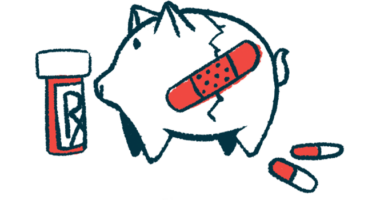How I learned the meaning of self-love as I battled PNH
Sometimes to make it through, we have to fight

When I was growing up, self-love wasn’t something I thought about too much. I had bought into the idea that to be happy, I had to make a lot of money and work until I couldn’t anymore.
But when I was 19, I had to start fighting two rare blood disorders: aplastic anemia and paroxysmal nocturnal hemoglobinuria (PNH). Before my diagnosis, I was focused solely on crossing goals and dreams off my list, even if I had to neglect my body to do so.
This ignorance sent my body into a downward spiral. I had to take a year of medical leave from college to attend to my health. Through this hard life lesson, I learned the true meaning of self-love. I learned what it meant to take care of my body, mind, and spirit.
I hate when famous people say they sleep only four hours a night. This strategy doesn’t work for patients like me. For me to be successful, I must give myself some TLC. I must trust my instincts and provide myself love and awareness as I fight my health battles.
The meaning of self-love is “an appreciation of one’s own worth or virtue.” Learning to care for my well-being takes practice. It can be easy to neglect yourself when attending to other things. I began my self-love practice after hard days in the hospital being poked and prodded. I took endless amounts of medication, some to offset the side effects of others. My mind was filled with thoughts of defeat, a pattern I never thought I would escape.
My mom would tell me that to make it through, I’d have to fight. At the time, I thought she meant I’d have to fight for my life. But it was much deeper than that. She wanted me to fight for every part of me. This also meant giving in to self-love and handling myself with care.
I began to see this practice as a way of telling my body “thank you” on the days when another bruise showed up or I had to spend the night in the hospital and be awakened every hour for my vitals to be taken. The endless days were hard. My mind grew tired, and my body began to change.
Looking in the mirror, I didn’t see me. I saw swollen cheeks the size of a blowfish and a belly that was constantly bloated. Brandi wasn’t there. Instead, she was a lab rat who received test results aimed at fixing the problem. My parents would try to get me out of the house, but I didn’t want to go anywhere. The depressive state I was sinking into wasn’t healthy.
Turning the page
With a notebook and a pen, I opened a journal whose pages were soaked with tears. I had so much on my mind, but it was hard to put pen to paper. As I forced myself to write anything, to my surprise, my hand began writing. It was as if it were separate from my body. I wrote and wrote, turning page after page.
My practice of self-love was coming to life. My head was full of thoughts, frustrations, and confusion about how I had gotten here. I didn’t know how liberating it would be to get all of it out of my head. That was when I understood that by incorporating self-love as a daily practice, it was another way I could fight. I began showing myself love not only by journaling, but also by listening to my body, resting, and speaking up for myself.
My body and I began to work together, and over time, I became stronger mentally, physically, and emotionally. Self-love was a hard lesson to learn but one that was worthy.
If you are having a hard time practicing self-love, start by answering this question: How can I thank my body, mind, and soul for what they have done for me?
Note: PNH News is strictly a news and information website about the disease. It does not provide medical advice, diagnosis, or treatment. This content is not intended to be a substitute for professional medical advice, diagnosis, or treatment. Always seek the advice of your physician or other qualified health provider with any questions you may have regarding a medical condition. Never disregard professional medical advice or delay in seeking it because of something you have read on this website. The opinions expressed in this column are not those of PNH News or its parent company, Bionews, and are intended to spark discussion about issues pertaining to paroxysmal nocturnal hemoglobinuria.









binance konto skapande
Thanks for sharing. I read many of your blog posts, cool, your blog is very good.
Brandi Lewis
Thank you! I am happy to hear that!